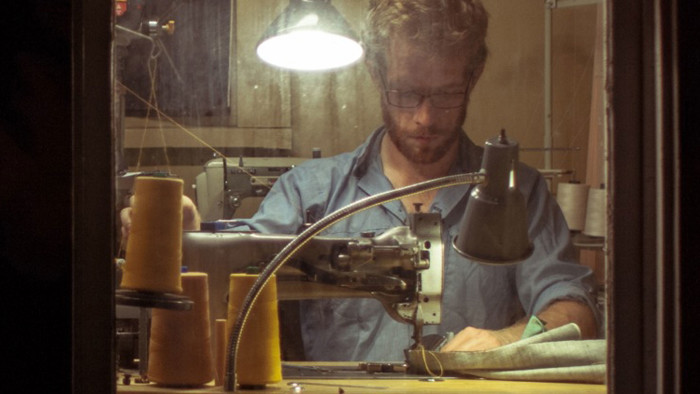Artisan jeans gain a following

Simply sign up to the Life & Arts myFT Digest -- delivered directly to your inbox.
Anyone who thinks of a pair of jeans as a classic example of a mass-manufactured product is likely to be perplexed by Ande Whall’s work.
In his native New Zealand, Whall makes each pair of jeans by hand and has a waiting list for his clothes. “When you’re doing everything from making patterns, label design, web design and construction of the jeans yourself, you are inside the machine all day, every day, and find what works and what doesn’t,” says the self-taught tailor.
Whall says his business model works “and keeps me in food and shelter – just”. He produces in small batches and sells online (from $250 a pair) with minimal overheads bar his vintage sewing machines and denim imported from Japan.
Whall is not alone in this sector. Other one-man jeans manufacturers launched recently include Red Cotton Denim and Matias Denim (both on the American West Coast), Paleo Denim of Texas, WH Ranch Dungarees of Colorado, and Tender Co and Dawson Denim, both UK-based.
“It’s like we all fell under some crazy spell and had to make jeans,” says former metal fabricator Roy Slaper of California-based Roy Denim (jeans from $340). “But food is a good comparison: to the person who survives on a diet of fast food, the discussion of organic or ethical food is abstract and suspect. He would point to the hamburger he likes costing $3 and say only a fool would pay more. But our jeans are the $15 hamburger. The materials I use are special.”
His jeans feature over-locked inseams, raised belt loops, chain-stitched hems, hidden rivets and single-needle stitching, details rarely found on their mass-produced counterparts.
Richard Cole, a former carpenter and founder of Paleo (jeans from $210), says: “Denim is becoming artisan and hyper-local, much as with the booms in recent years for craft beers and specialist coffee roasters. It’s reclaiming the details that have been lost through automation.”
An artisan’s quality control can also be painful. Red Cotton’s Camillo Love, a former US Navy engineer who produces about 840 pairs a year (from $200 each), says: “I got to the end of making four pairs the other day and had to put them aside – they just weren’t right. The stitching was off. I once thought, ‘How difficult could it be to make a pair of jeans?’ But to do it well is really very difficult. It takes years of practice before you can launch commercially.”
Ranch Dungarees’ Ryan Martin makes about three pairs of jeans every two days (from $315 a pair). He says the launch of one-man brands has been facilitated by new access to raw materials. “If you go to a denim maker here in the US, they’d want a minimum order of 15,000 yards of fabric,” he says. “But Japanese mills are much more ready to work with an individual maker’s requirements.”
Nick Coe of Rawrdenim.com says crowdfunding and social media have also been crucial in enabling artisan products and consumers to find each other. “The wearer knows exactly where their jeans are sourced and made,” he says.
Matias Denim’s Matias Sandoval, who makes about 100 pairs a month ($240 each), says: “There is a ‘secret handshake’ vibe about wearing jeans from a one-man brand. There’s an elevated perceived value that customers find when they can talk about the person who made their jeans.”
One such customer is Alan Johnson, a business consultant from North Carolina and a fan of Matias’s jeans. “I concede, if you are looking at logic alone, buy Levi’s. [But] there has to be an appreciation of the combination of art, craft and personal interpretation to consider jeans made by an individual.”
Kevin Taggart, a sales executive from Austin, Texas and a Paleo Denim customer, says: “I’ve had suits made for me since I started in business and, if I’m willing to pay for something I might wear three times a month, it makes perfect sense to pay for a pair of handmade jeans I will wear every day.”
William Kroll, of Tender Co, says: “People want to feel connected to their jeans.” He makes about 200 hand-dyed pairs a year (at £235 each). “I think we can expect to see the same thing happen with leather goods next,” he adds. “Denim is showing us a philosophy of making that could be applied to many things.”
——————————————-
Stockists
More of this week’s Style stockists
Comments